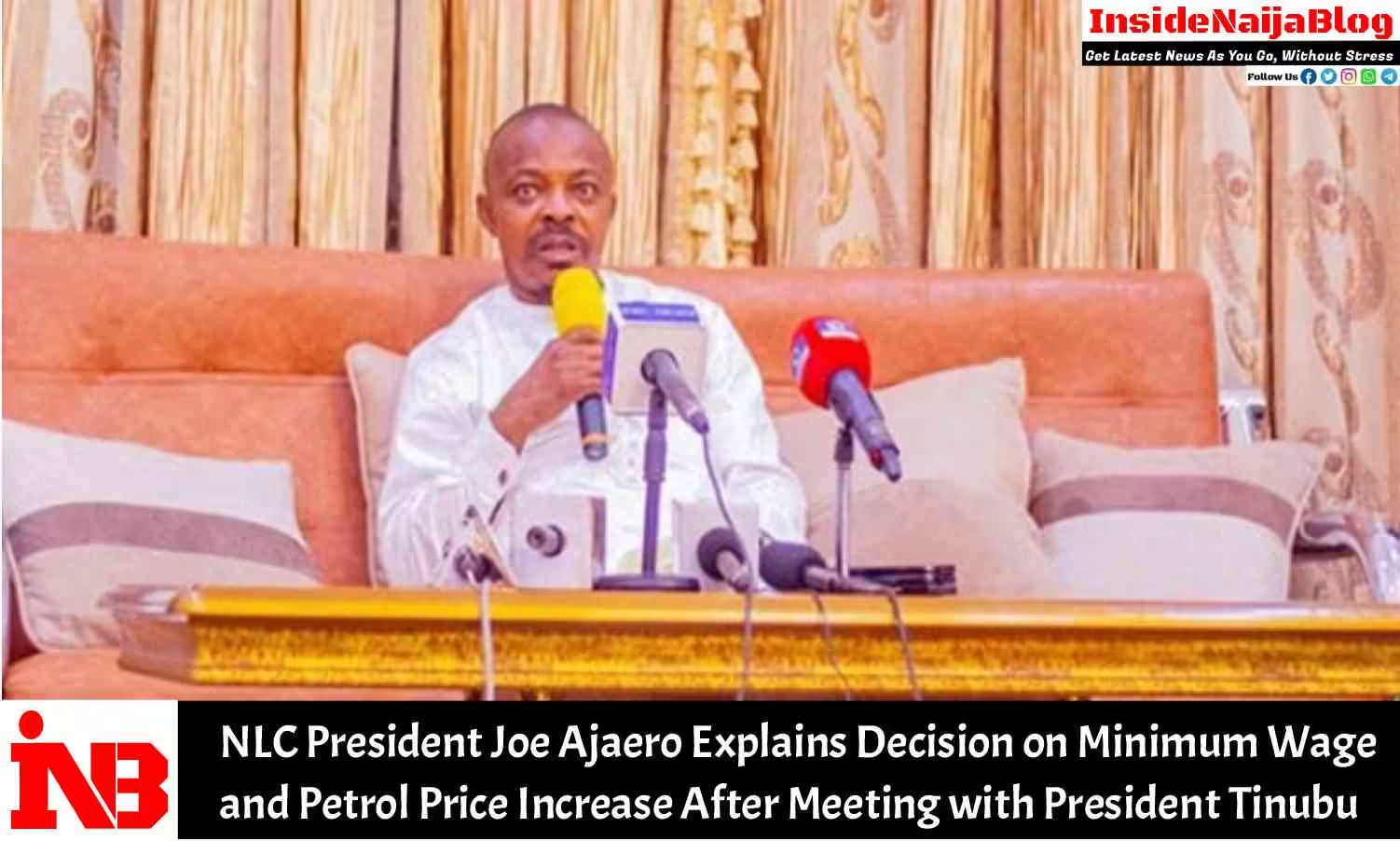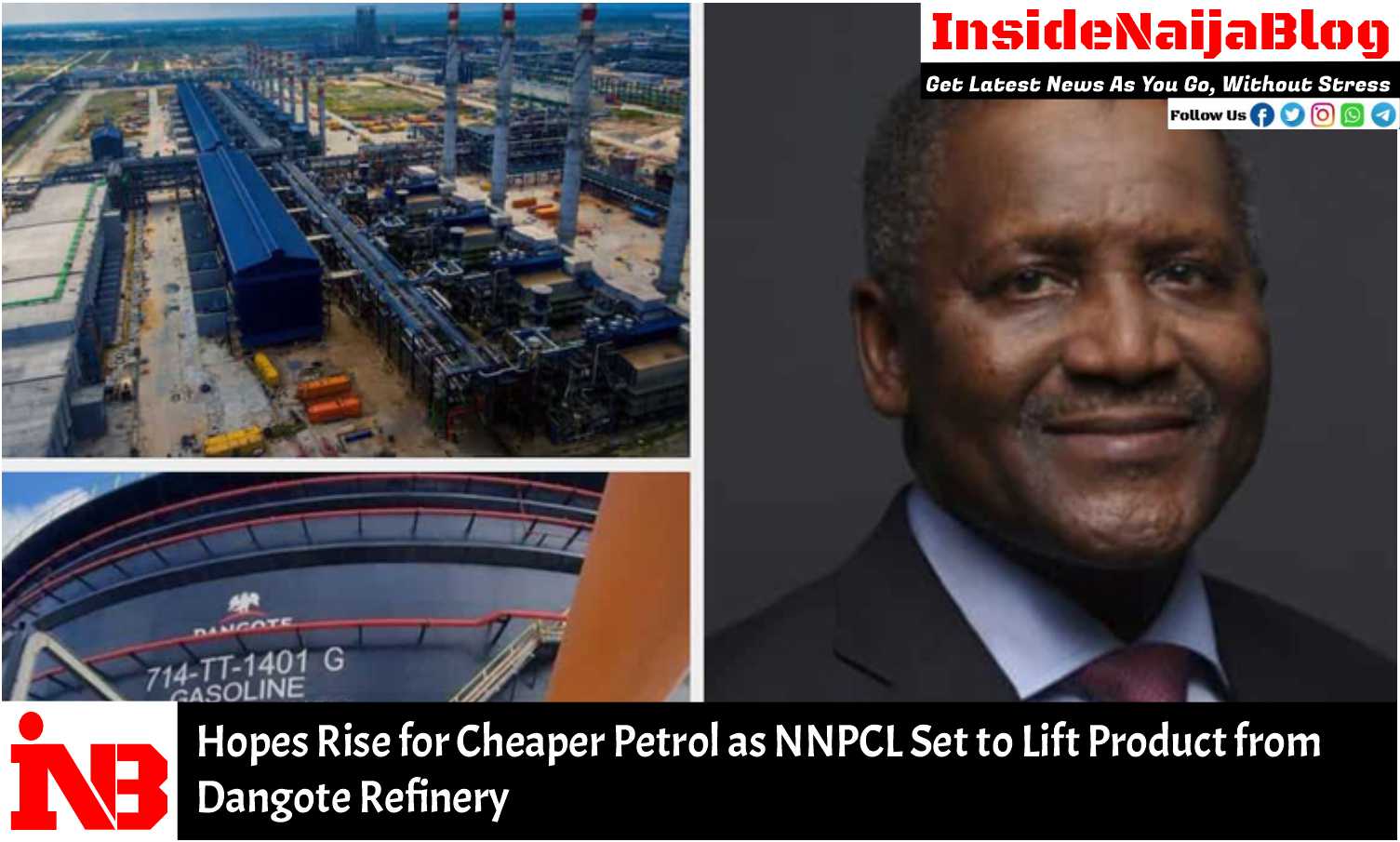On Friday, the President of the Nigeria Labour Congress (NLC), Comrade Joe Ajaero, shed light on the recent discussions with President Bola Tinubu regarding the new national minimum wage and the issue of petrol price hikes. This followed the organized labour’s decision to settle for a ₦70,000 minimum wage after initial demands for ₦250,000.
Ajaero explained the situation during an interview on Arise News’ “Morning Show.” He emphasized that the organized labour, which includes both the Nigeria Labour Congress (NLC) and the Trade Union Congress (TUC), had firmly rejected the idea of accepting a petrol pump price increase in exchange for the proposed ₦70,000 minimum wage. Initially, labour unions demanded ₦250,000 but ultimately compromised at ₦70,000 after talks with the President.
What Happened During the Meeting?
During the interview, Ajaero gave a detailed account of what transpired at the meeting with President Tinubu at the Presidential Villa. He said the President offered the option to raise the minimum wage to ₦250,000 if labour agreed to an increase in petrol prices.
President Tinubu was clear about his stance on the removal of the petrol subsidy, which led to increased fuel prices across the country. According to Ajaero, Tinubu mentioned that other West African countries were already paying much higher prices for fuel and hinted that Nigeria should follow suit. However, Ajaero and his colleagues immediately rejected the President’s proposal to link the minimum wage increase to a petrol price hike.
“We were discussing, and there was a stalemate at ₦62,000, with some states even saying they wouldn’t be able to pay that. When the discussion reached a deadlock, we met with President Tinubu, who suggested an alternative,” Ajaero recalled.
The NLC President described how the President proposed that if labour agreed to a petrol price increase, he would push the minimum wage to ₦250,000. However, Ajaero made it clear that the labour movement refused to entertain the idea of negotiating petrol prices. He reiterated that the only agenda they were willing to discuss was the new minimum wage.
Ajaero revealed that Tinubu even offered to sponsor a fact-finding trip for the labour leaders to other West African countries to compare their petrol prices with Nigeria’s. Still, the NLC and TUC declined the offer and insisted that the focus of the meeting remain on improving workers’ salaries.
Labour’s Position on Strike and Petrol Price Hikes
Ajaero also addressed the recent increase in petrol pump prices and explained why the NLC had not yet declared a strike in response. According to him, decisions like this cannot be made by one person. The NLC operates through various committees, including the Central Working Committee (CWC) and the National Executive Council (NEC), which are responsible for deciding when or if to call a strike.
“No NLC President will unilaterally declare a strike without consulting the organs of the Congress,” Ajaero stated. He explained that meetings are planned for the upcoming week where the entire body of the NLC will deliberate on the issue of the petrol price increase.
He also clarified that the union has already started consultations within its ranks and will soon gather to discuss possible actions. “By next week, we should be able to meet and have a conversation about this. The position of the leader (NLC President) should not overshadow the collective will of the members,” Ajaero said.
What’s Next for Labour and Minimum Wage?
While the organized labour has settled for ₦70,000 as the new minimum wage, there is still ongoing concern over rising petrol prices and how they will affect workers and the general population. Labour’s next steps will likely be determined after their internal meetings, but the issue of the fuel price hike remains a contentious point.
For now, the NLC is focusing on ensuring that the ₦70,000 minimum wage is implemented while keeping a close eye on government policies, especially regarding fuel pricing. Labour leaders like Ajaero continue to express their commitment to representing the interests of workers while navigating the challenging negotiations with the government.



